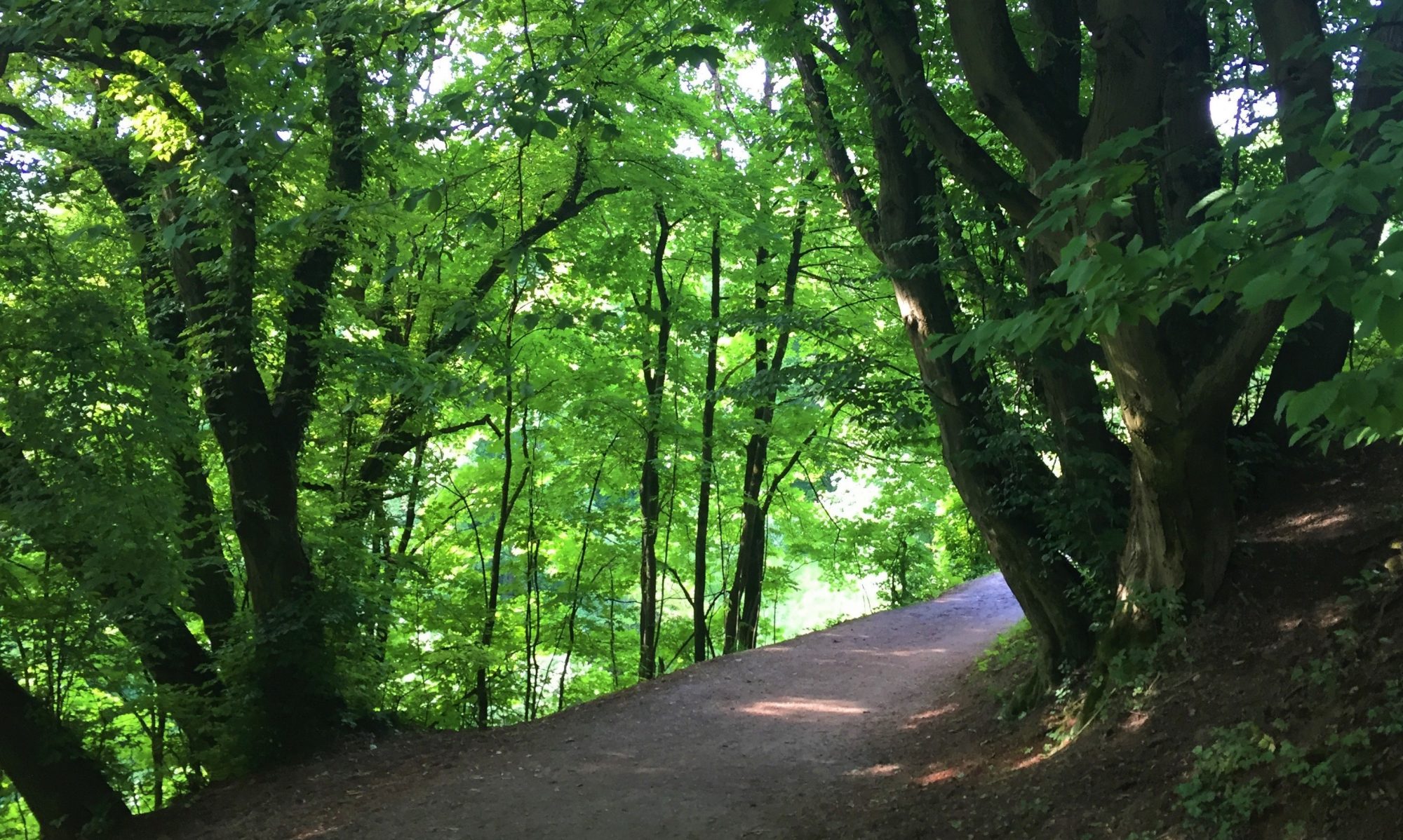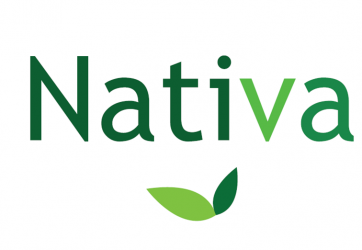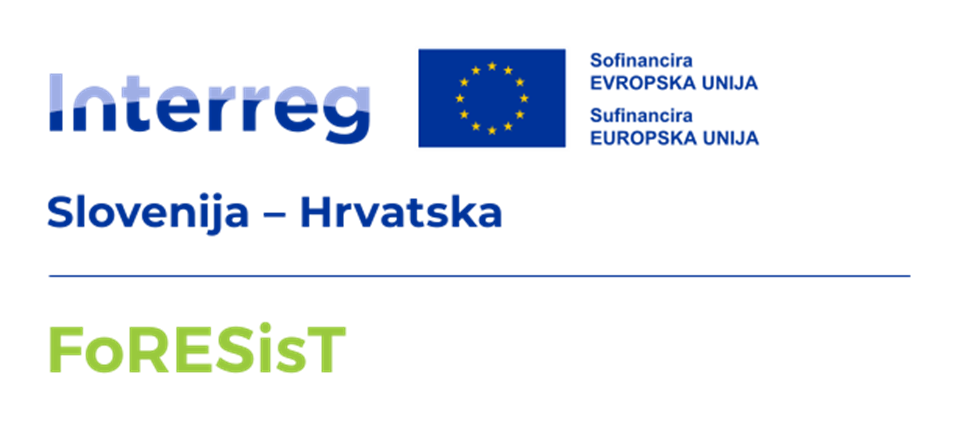
Projekt FoRESisT (Ohranjanje in vrednotenje gozdnih in kmetijskih ekosistemov v čezmejnem območju) poteka v okviru programa čezmejnega sodelovanja Interreg Slovenija – Hrvaška. Cilj projekta je izboljšati stanje ohranjenosti habitatov, podpreti biotsko raznovrstnost in ovrednotiti storitve ekosistema zlasti v povezavi z gozdovi, kmetijskimi in sladkovodnimi habitati.
Na območju Krasa, na otoku Krku in Dobreću pri Opatiji bodo opravljene podrobne analize in konkretni ukrepi za ugotavljanje trenutnega stanja habitata in biotske raznovrstnosti ter njegovo izboljšanje. Končni cilj je izdelava skupne strokovne ocene stopnje ogroženosti raziskanih habitatov ter opredelitev in izvedba konkretnih ukrepov za ublažitev in preprečevanje njihove ogroženosti.
Vodilni partner projekta je mesto Opatija, poleg Native so ostali partnerji projekta: Gozdarski inštitut Slovenije iz Ljubljane, Univerza na Primorskem, Komunalno društvo Dubašnica iz Malinske in Hrvaški gozdarski inštitut iz Jastrebarskega.
Trajanje projekta: 1. 3. 2024 – 31. 8. 2026
Proračun projekta: 1.474.765,94 EUR
ESRR sredstva: 1.179.812,73 EUR

SReST – Socially Responsible Slow Food Tourism
The intangible cultural and natural heritage of the Danube agrobiodiversity and its gastronomy treasures are at risk. Losing agrobiodiversity heritage can potentially mean losing a wealth of genetic resources for food and agriculture, limiting our options for adapting to climate change, and making food less colourful, less inspiring and less nutritious.
Nativa is a partner in the Interreg Danube project Socially Responsible Slow Food Tourism (SReST) aiming to face this common challenge and to provide solutions for the Danube area agrobiodiversity and food heritage valorisation in a socially responsible way. By doing so, the project will help to enhance local agricultural high-value chains while preserving local communities’ natural and cultural diversity and promote sustainable tourism as a pathway for food heritage protection also by engaging vulnerable groups (youth, elderly, disabled, migrants) in rural and suburban partner areas.
Within SReST, we will develop joint solutions to enhance socio-economic development and to promote alternative models and competitive new tourism products of sustainable tourism “slow food” itineraries grounded in agrobiodiversity and food heritage, tested in different territorial contexts of pilot regions.
SReST will provide integrated solutions that will result in a community that interacts and works as a system, welcoming visitors who discover it through tourism agrobiodiversity in an engaging (SRest = splendid rest) way. SReST Digital Ecosystem for Learning and Innovation will incorporate all our learnings, solutions & instructions and will enable capitalization of project results beyond the initial project territory.
Total project budget: 1.540.470 EUR
Total EU funds: 1.232.376 EUR
23. 02. 2024
ZAPOSLUJEMO!
Za potrebe projekta čezmejnega sodelovanja Interreg Slovenija – Hrvaška: Ohranjanje in vrednotenje gozdnih in kmetijskih ekosistemov v čezmejnem območju – FoRESisST iščemo kandidate za delovno mesto projektni strokovnjak.
Od kandidatov se pričakuje najmanj 10-letne izkušnje s projektnim delom (prednost bodo imeli kandidati z izkušnjami na EU projektih), specifično ekspertno znanje na področju komuniciranja in komunikacijskih strategij ter temeljno poznavanje področja gozdnih in/ali kmetijskih ekosistemov. Svoje življenjepise pošljite po elektronski pošti: nativa.institute (at) gmail.com ali na naslov: Nativa, Rožančeva cesta 13, 1000 Ljubljana, najpozneje do 5. marca 2024.

Green-Tex
Production of textiles is one of the most polluting global industries (accountable for 20% of industrial wastewater, emitting large quantities of greenhouse gases). Analysis shows that 86% of clothing is either landfilled or burned after use and only 1% is recycled into new clothes. Therefore, the EU Waste Framework Directive (WFD) imposes separate textile waste collection in the EU by 2025.
Nativa, Institute for Sustainable Growth is a partner in the EU Danube Region Programme project “Enhancing Danube Green Textile and Garment Production and Consumption” (Green-Tex).
Green-Tex project aims to strengthen transnational collaboration and innovation in the Danube area’s sustainable textile sector and thus make value chain actors in partner regions more resilient and competitive in adjusting to global shifts from traditional to more regenerative circular economy based green textile practices.
Green-Tex will create and test new solutions throughout the entire value chain (starting from fashion design to production and usage as well as textile waste collection) and verify them in various contexts within the project territory. Digital solutions will be an integral part of the Green-Tex project, supported by awareness raising campaigns. Green-Tex solutions will be incorporated into the “Green-Tex learning and innovation platform”. The project is applying a multisectoral approach by integrating partners and stakeholders from the textile, waste collection and recycling, product design and other sectors. It is also integrating all actors within a quadruple innovation helix framework, relevant for the successful application of circularity in the textile sector.
Green-Tex lead partner is Sarajevo Economic Region Development Agency (SERDA). The project will be implemented in the period between January 2024 and June 2026 in partner regions of Slovenia, Croatia, Hungary, Slovakia, Bosnia & Herzegovina, Serbia, Montenegro, Romania and Bulgaria.
Total project budget: 1.790.300,00 EUR
Total EU funds: 1.432.240,00 EUR

WOOL (Wool as Outstanding Opportunity for Leverage), Interreg Adrion Project
We are pleased to announce that Nativa is partnering with 9 other partners from Italy, Slovenia, Croatia, Bosnia & Herzegovina, Montenegro and Greece on WOOL project.
Wool – when ethically made – this recyclable, renewable, biodegradable, natural material presents great potential that has now become an important market niche for sustainable providers.
WOOL project is funded by the INTERREG VB Adriatic-Ionian ADRION Program 2014-2020 and led by the Upper Adriatic Technology Park SCPA.
Over the next 2 years, we will be presenting new sustainable and seasonally adjusted tourist experiences and artisanal products made from wool, connected to the pastoral heritage and traditions, but also interpreted in an innovative way.
Visit the project website: https://www.adrioninterreg.eu/

Laguna Heritage Tourism Cluster (LHTC)
The overall objective of Laguna Heritage Tourism Cluster in Montenegro is to strengthen innovation capabilities of hotel Laguna and a group of companies around/within its value chain. This is accomplished by enhanced collaboration among cluster members and relevant academic and research institutes which contributes to the creation of new innovative tourism products, including handicrafts.
Nativa facilitated the launch of the cluster, led its promotion and organised a study visit of cluster members to Slovenia.
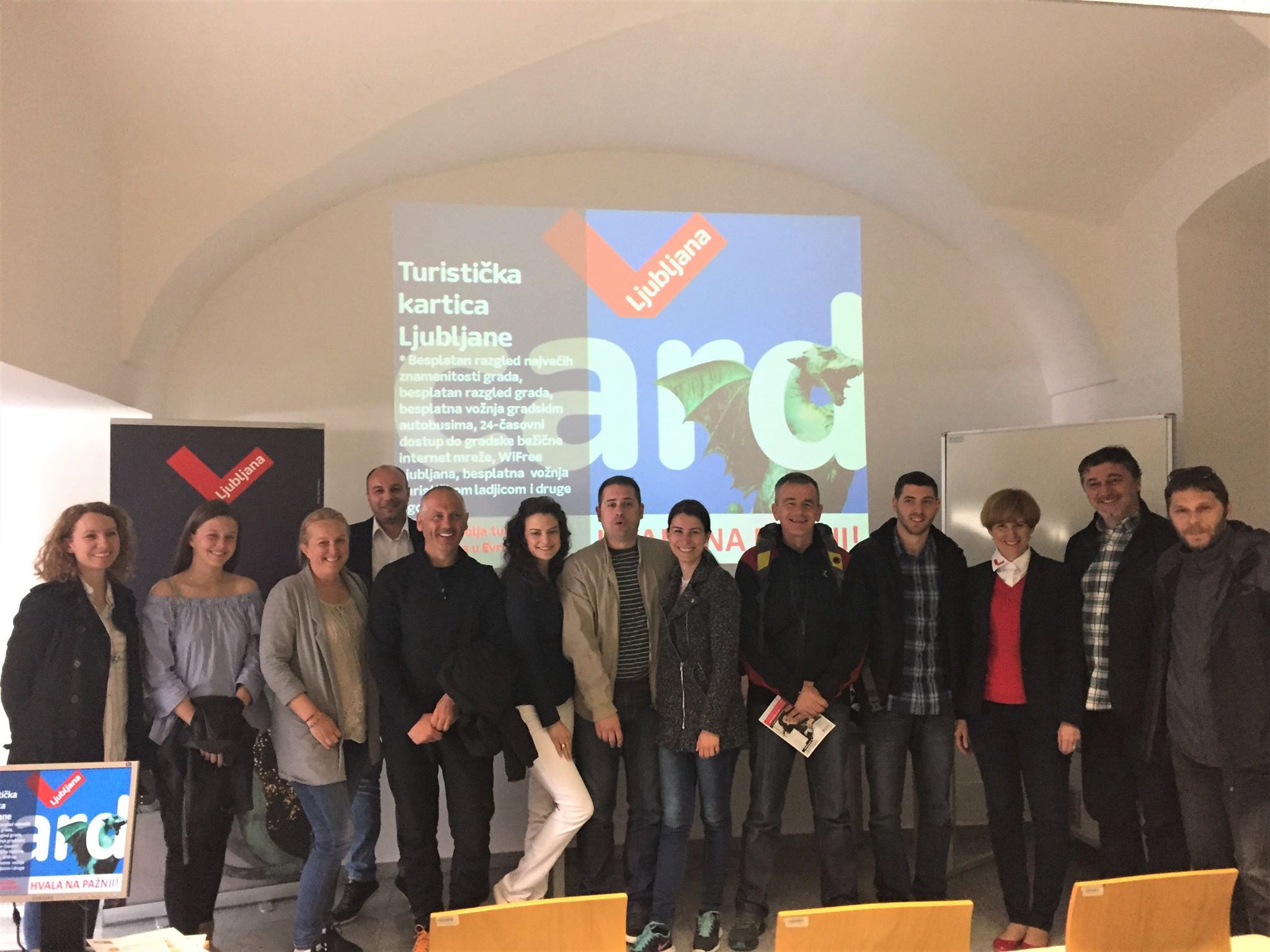
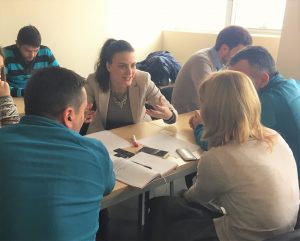
Southern Dinarides Eco and Cultural Tourism Actions
Cross-border area between Montenegro and Bosnia and Herzegovina is marked by beautiful Dinaric Alps. Nativa provided international marketing expertise to the Center for Protection and Research of Birds of Montenegro (CZIP) in the process of development of tourism packages and supported the creation of the plan for launching of authentic Dinaric handicrafts.
We facilitated strategic dialogue among stakeholders on the launch of the ‘Dinaric Handicraft Cluster’ and led the story creation of “Piva – Quest for Stecci” and “Crkvice – Embraced by Nature”.
Adriatic Health and Vitality Network (AHVN)
Adriatic Health and Vitality Network (EU IPA Adriatic project) was a three year multi-country project aiming to merge healthy lifestyles tourism and authentic culture into unique tourist experience networked throughout the Adriatic region. Intensive training of SME-s from partner region Koper for high-quality tourism service delivery was an integral part of this project where Nativa was involved.
Capacity building events addressed topics of modern tourism itinerary creation, tourism marketing and prototyping environmentally friendly packaging for handicrafts and authentic home-made products.
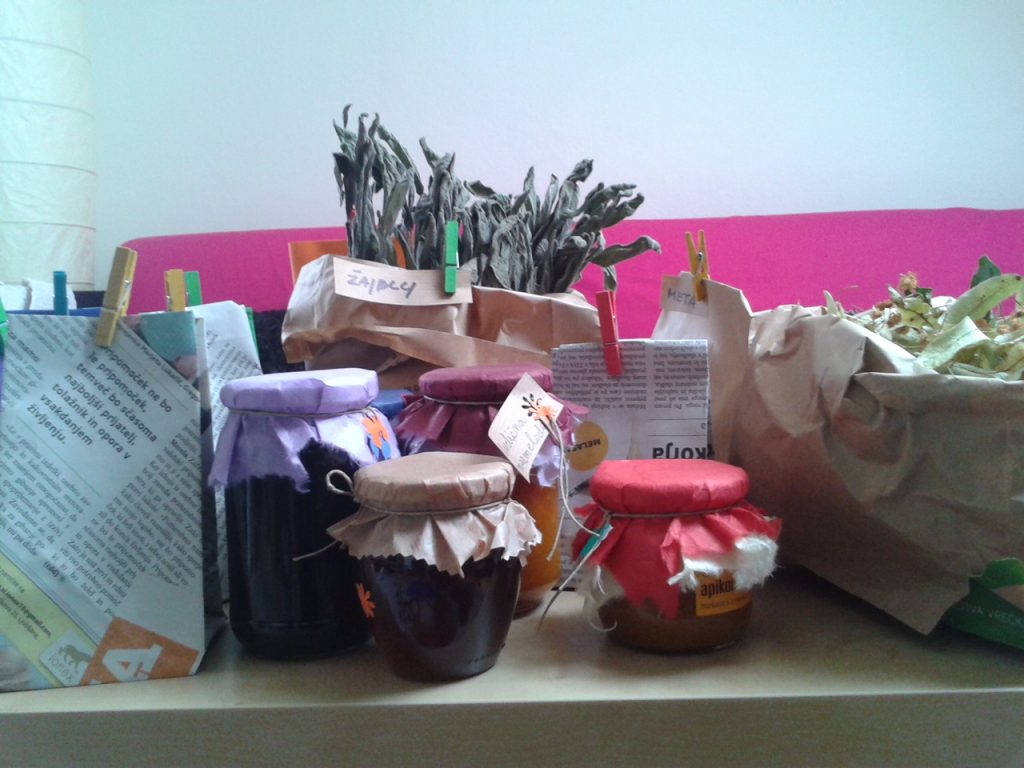
South East Europe Sustainable Energy Policy (SEE SEP)
The overall objective of this multi-country project was to enhance the collaborative capacity of the civil society organisation’s (CSO) networks and apply best practices in sustainable energy sector.
The project also empowered stakeholders to engage in fact based dialogue with key decisions makers to influence policy and practice for a more sustainable energy system in South East Europe, aligned with key EU Policies and Directives.
